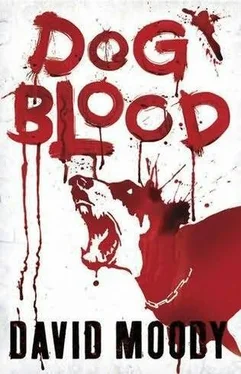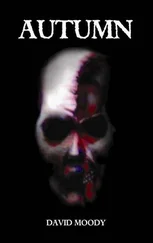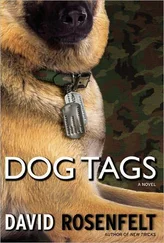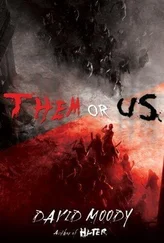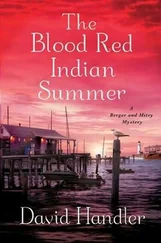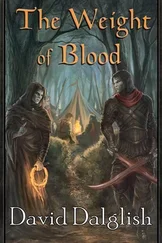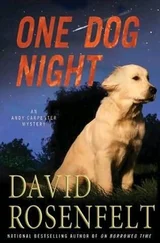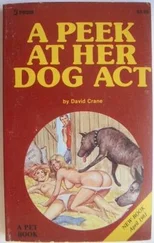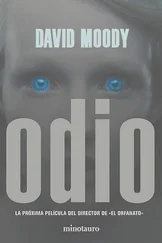
© 2009
TO THE MEMORY OF
Dr. Brian Barnes
(1942-2006)
I’d like to thank a number of people for their help and support.
First, and perhaps most obviously, to John Schoenfelder at Thomas Dunne Books in New York and Jo Fletcher at Gollancz in London; thank you both for your tireless enthusiasm, observations, recommendations, guidance, and suggestions.
To my family and friends, thank you for your patience, tolerance, and unwavering belief and support over the last few years as I’ve negotiated this particularly crazy section of my haphazard and largely improvised “career path.” Particular thanks to my long-suffering wife, Lisa, who never questions why she regularly catches me researching subjects as diverse and unsavory as genocide, germ warfare, secret underground bunkers, torture techniques, and countless other topics!
Finally, and most important, to those of you who’ve read and enjoyed my previous books, thank you for coming back for more! Particular thanks to those readers who’ve been with me since the very early days of giving away thousands of free downloads of Autumn and all my subsequent adventures with “Infected Books.” Some of you read Hater when it was self-published in the summer of 2006, and you’ve been waiting since then for this sequel to arrive. It’s finally here and I hope you enjoy it. I promise, you won’t have to wait anywhere nearly as long for the conclusion to the trilogy!
To everyone I’ve listed above and to anyone else I should have mentioned but didn’t, thank you.
THE CAUSE OF THE Hate (as it had come to be known on both sides of the uneven divide) was irrelevant. At the very beginning, when the doubters had been forced to accept that something was really happening and that the troubles weren’t just the result of media-fueled, copycat mob violence, the usual raft of baseless explanations were proposed; scientists had screwed up in a lab somewhere, it was an evolutionary quirk, it was a virus, a terrorist attack, aliens, or worse… Thing was, people were quickly forced to realize, it didn’t matter. You could bullshit and postulate and hypothesize all you wanted-it wouldn’t do you any harm, but it wouldn’t do you any good either. Within days of the belligerent population finally beginning to accept that the shit had indeed hit the fan with almighty force, no one talked about the cause of the Hate anymore. Hardly anyone wasted time even thinking about it. The only thing of any importance to the non-Hater section of the populace now was survival. And the so-called Haters? The one-third of society who had changed? Those previously “normal” people who, without warning, had each become savage, brutal, and remorseless killers? The only thing that mattered to any of them was destroying every last one of the Unchanged (as they labeled their enemy) until none remained alive.
Before it had actually happened, the popular assumption in most apocalyptic films and books was that the population as a whole would immediately bind together against their common enemy and either stand united and fight back or take cover and hunker down when it became clear that something of Armageddon-like proportions was looming on the horizon. They didn’t. Whether it was because many of them simply chose to bury their heads in the sand through fear or denial until it was too late, or whether it was instead just their stubborn refusal to abandon their homes, material possessions, and daily routines, no one knew. No one cared. A cynic might suppose that the effects of the Hate had been camouflaged by an inherently bad-tempered, mistrusting, selfish, and greed-driven society, but the exact reasons for society’s lack of reaction were neither clear nor important. The bottom line was that the extent and implications of what was happening weren’t fully appreciated until it was far too late, and the repercussions were devastating. This, it was painfully apparent, was no ordinary war.
In many ways the situation the Unchanged found themselves facing was indefensible. This conflict wasn’t faction versus faction or army against army; it was individual versus individual, more than six billion armies of one. Beyond that, the Hate didn’t care who you were, where you were, or what you were. You were simply on one side or the other, your position in this new, twisted, fucked-up world decided without your involvement by unknown variables and fate. Within weeks command structures at every level were compromised. Organizations fell apart. Families crumbled. The Haters were everywhere and everyone, the whole world beaten up from the inside out.
The ratio of Unchanged to Haters was generally thought to have settled somewhere between 2:1 and 3:1. In spite of their enemy’s ferocity and apparently insatiable bloodlust, their greater numbers and preexistence gave the Unchanged an early advantage that was quickly squandered. With no time or inclination to look for a cure (could the condition even be reversed?), separation and eradication soon became the only viable option for survival. Conveniently ignoring lessons learned through history and any moral arguments, a halfhearted attempt to cull the Haters failed dramatically. Almost overnight the Unchanged plan of attack was forced to become a plan of defense, and their first priority was to make their people defendable. Civilians were herded together, major city centers quickly becoming swollen, overcrowded, undersupplied, understaffed refugee camps. Once they’d successfully separated “us” from “them,” the Unchanged theory went, they’d head back out into the wastelands and hunt the fuckers out.
Less than four months ago, when the last frosts of winter had finally thawed and the first green buds of the year’s new growth had tentatively started to appear, this public park had been a frequently empty and underused oasis of lush greenery buried deep within the drab gray concrete heart of the city. It was a place office workers used to escape to during lunch breaks or take a shortcut through on their way to or from work. A place where kids playing hooky from school would hide and drink stolen alcohol and smoke cigarettes and carve their names on wooden benches and tree trunks. A place where elderly shoppers with too much time and too many memories would sit and talk to anyone who’d listen about how the country had gone to ruin and how things used to be so much better back in their day… and it had to be said, they were right.
Tucked away in the long shadows of office buildings, shopping malls, convention centers, and multiplex cinemas, what used to be a vast and open expanse of grass was now covered in cramped rows of ragged, refugee-filled tents. Two soccer fields had become helicopter landing pads, constantly in use. The patch of soft asphalt where children’s swings, merry-go-rounds, and slides used to be had been commandeered to house heavily guarded and rapidly dwindling stockpiles of military equipment and supplies. The changing rooms on the far side of the park were now a hopelessly inadequate field hospital. Next to the small, square redbrick building, a tall wooden fence had been erected all the way around the park’s four concrete tennis courts. They had, until three weeks ago, been used as a makeshift morgue, but by then the number of stacked-up corpses awaiting removal had reached such a level that the cordoned-off area had become a permanently lit funeral pyre. There was no longer any other way of hygienically disposing of the dead.
Before his mother had tried to kill him and he’d been dragged screaming into the war he’d desperately tried to isolate himself from, Mark Tillotsen had sold insurance in a call center. He’d worked hard and had enjoyed (as much as anyone enjoyed selling insurance in a call center) the job. He’d liked the anonymity of the role, and he’d taken comfort from the safety of the daily routine, the procedures and regulations he hid behind, and the targets he worked toward. In his last development review, just a month or so before the Hate, his manager had told him he had a bright future ahead of him. Today, as he trudged slowly through the afternoon heat toward a convoy of three battered trucks bookended by heavily armed military vehicles, he wondered whether he, or anyone else for that matter, had any kind of future left to look forward to.
Читать дальше
